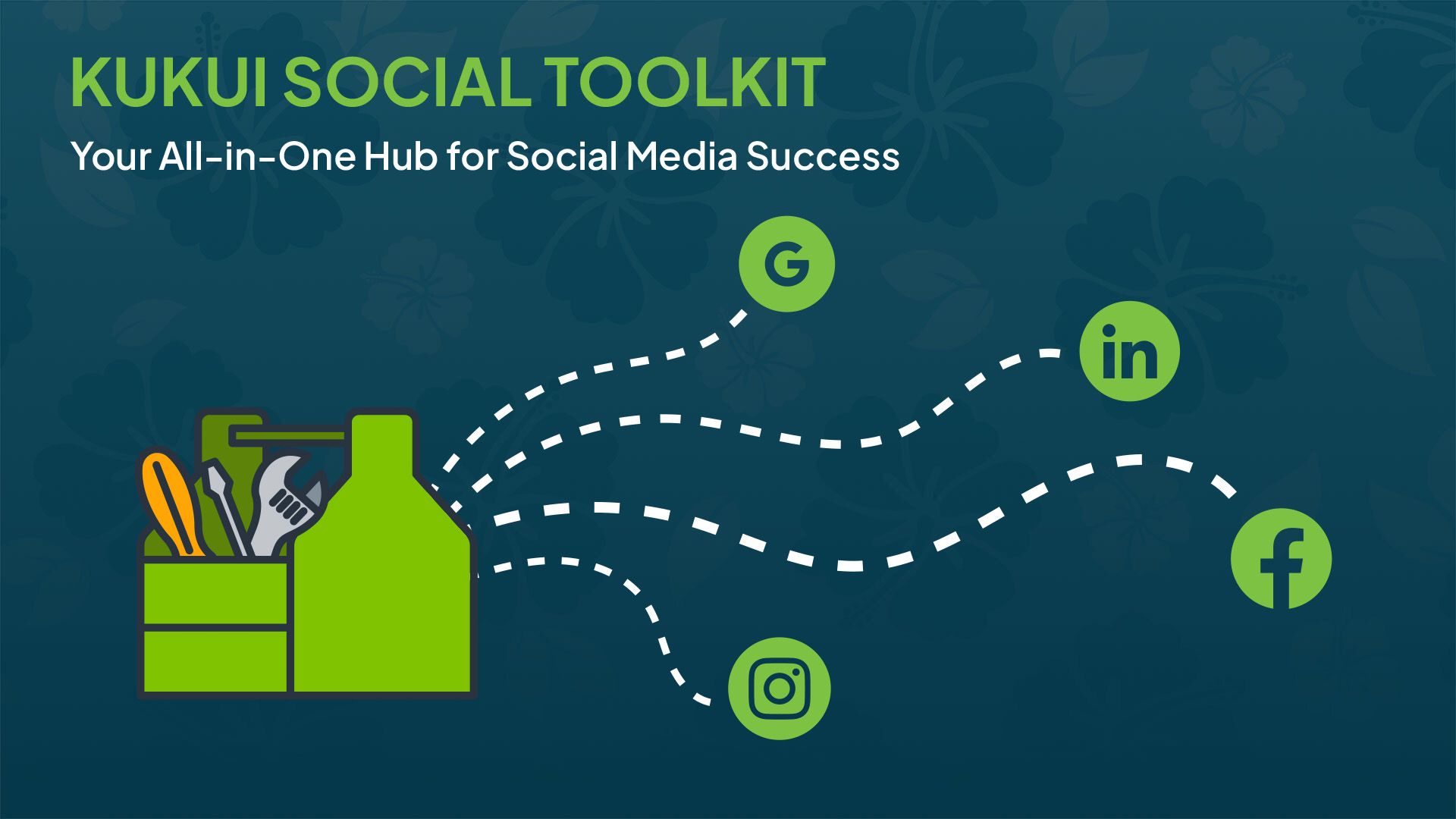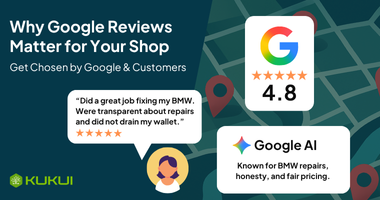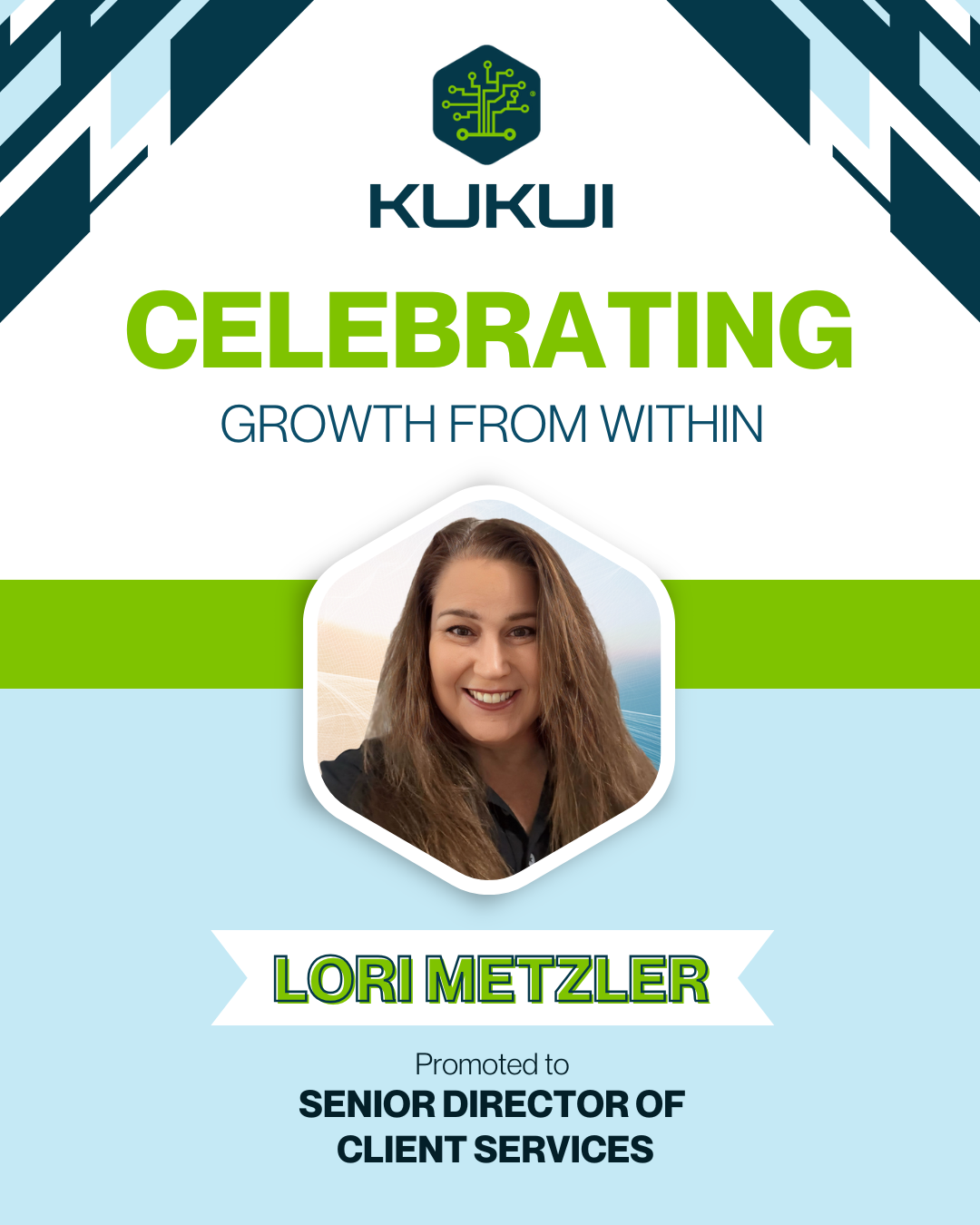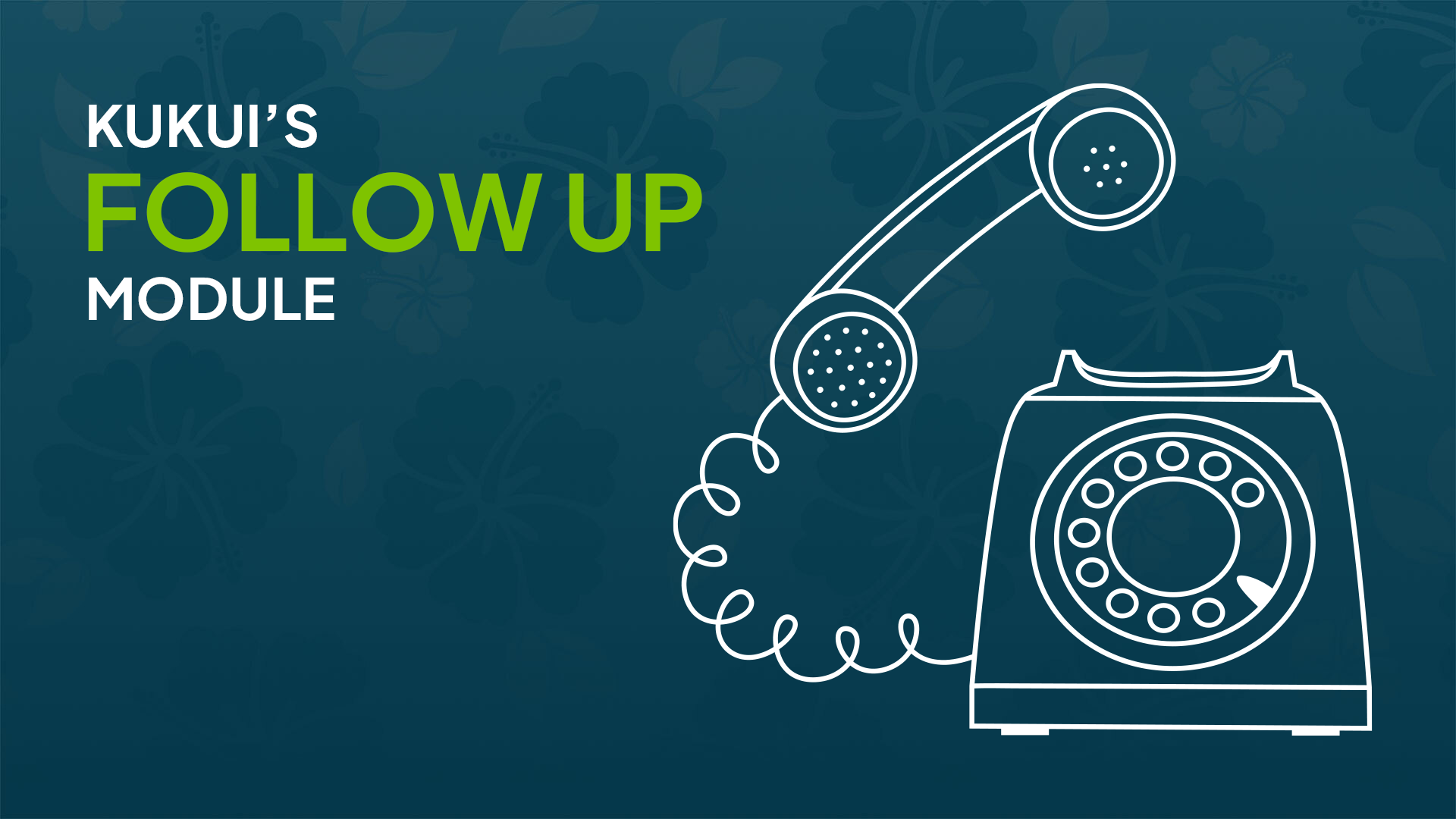Local SEO Series Part 1: Intro to SEO
Introduction to SEO (Search Engine Optimization)
Have you ever wondered why certain websites consistently rank at the top of Google's search results while others remain hidden? Beyond design or content, it's primarily due to the mastery of SEO - Search Engine Optimization. SEO ensures that websites don't just exist online but thrive and stand out.
In our journey through the world of SEO, we'll explore various facets of this digital marketing discipline, and one area that deserves special attention is Local SEO. Local SEO is the key to helping businesses reach their nearby customers effectively. It's the bridge that connects the virtual world to your local neighborhood, making your online presence more relevant and accessible to people in your community.
Join us as we demystify SEO, transitioning from its complex layers to a clear, actionable strategy. We aim for clarity, precision, and actionable insights. In this content series, we'll delve deep into Local SEO, revealing how it can boost your business's visibility within your immediate geographic area. Our Local SEO series will equip you with the knowledge and tools to thrive in the competitive landscape of local search. Let's embark on this journey together, unraveling the ins and outs of Local SEO and harnessing its power to drive success in your local market.
What is a Search Engine
A search engine is a software that finds, organizes, and displays information from the internet to users. It searches and indexes webpages, images, videos, and other files, then shows results based on user searches. It matches user queries with the most relevant online content. In the case of Google, they focus on understanding the intent behind a user's search. It is not just about matching keywords on a page, but instead understanding what information the user is trying to find and matching them with websites with the information they are looking for.
How Search Engines Work
When you conduct a Google search, have you ever stopped to think about the intricate processes behind the scenes? The journey from entering a query to receiving a list of relevant results involves several detailed steps, each critical to delivering accurate and timely information. These steps are:

Crawling
Search engines use automated software robots, often called "crawlers" or "spiders," to visit websites and gather data about them. This is no small task, as there are an estimated
201,898,446 active websites today.
Fun Fact: There will be approximately 850 new websites created by the time you have finished reading this article.
Indexing
After crawling, the search engine decides which pages to add to their index database. This index lets the search engine quickly find relevant content when a user submits a query.
Ranking
When you type a query into a search engine, it sifts through its index to find and rank the most relevant pages. Algorithms, which are complex rules, help determine this ranking based on factors like site quality, relevance to the query, and hundreds of other considerations.
Displaying Results
The final list of web pages, ranked by numerous algorithms, is presented to the user as the search engine results page (SERP).
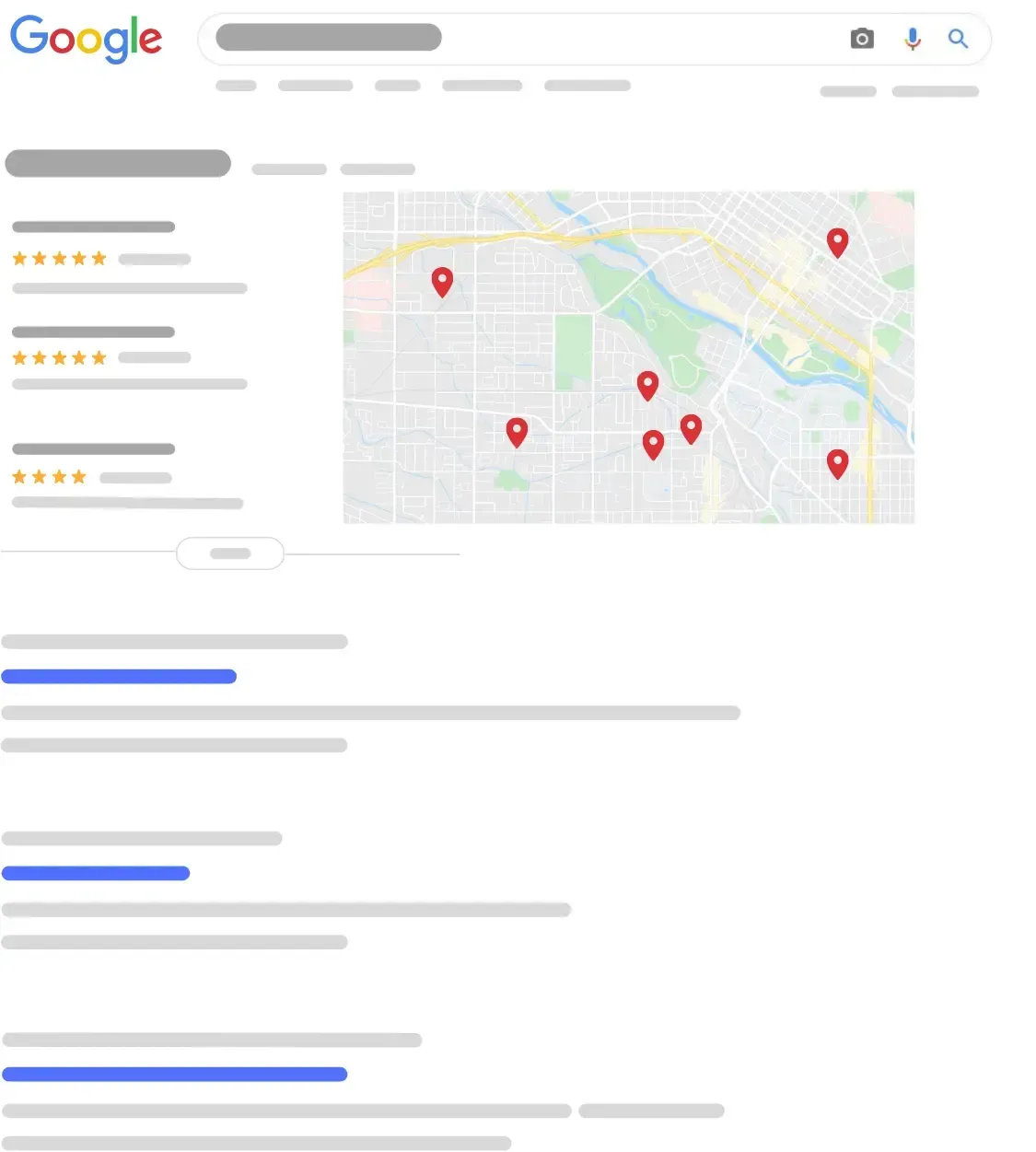
Popular Search Engines
While there are many search engines available, some of the most well-known include:
- Google: Arguably the most popular search engine globally, known for its speed and comprehensive results.
- Bing: Developed by Microsoft, it's another widely-used search engine with unique algorithms and features.
- Yahoo! Search: Older than Google, it was one of the original web search engines and still has a significant user base.
- DuckDuckGo: Known for its emphasis on user privacy, it doesn't track user data or browsing history.
Search engines play a pivotal role. They provide users with quick access to information and serve as primary traffic sources for many websites.
What Is SEO?
Search Engine Optimization, commonly abbreviated as SEO, is the science and art of improving a website's visibility in search engine results. Ensuring your website stands out amid the increasing competition is crucial.
SEMRush's Definition:
"SEO is about fulfilling users’ search needs by creating relevant, high-quality content and providing the best possible user experience."
Source: https://www.semrush.com/blog/what-is-seo/
Wikipedia's Insight:
"Search engine optimization (SEO) is the process of improving the quality and quantity of website traffic to a website or a web page from search engines."
Source: https://en.wikipedia.org/wiki/Search_engine_optimization
Moz's Perspective:
"SEO is a set of practices designed to improve the appearance, positioning, and usefulness of multiple types of content in the organic search results."
Source: https://moz.com/learn/seo/what-is-seo
These varying perspectives converge on a singular truth: SEO is about optimizing a website to cater to search engines and, more importantly, to the users seeking information
SEO Key Terms

On-Page SEO: Measures taken within your website to improve search rankings, including content optimization and meta tags.
Off-Page SEO: Activities outside your website to enhance trustworthiness and authority, including building citations.
Technical SEO: Optimizing the backend structure of your site, including website speed, mobile optimization, and more.
Organic Results: Non-paid search results that appear based on relevance to user queries.
Local Results: Search results customized to a user's geographic location, often displayed in a "Local Pack."
Sitemap: A hierarchical file listing all website pages to help search engines understand site structure.
Citations: Mentions of a business's name, address, and phone number on other websites, crucial for local SEO.
Meta Title (Title Tag): The main title of a webpage, plays a significant role in SEO and user experience.
Meta Description: A summary describing webpage content in search engine results, improving click-through rates.
Keywords: Specific terms or phrases users type into search engines for which you optimize your content.
Alt Tags (Alt Attributes/Alt Text): Text descriptions added to images for accessibility and aiding image search SEO.
Robots Meta Tag: Code in a webpage's HTML instructing search engine crawlers on indexing and following links.
Organic vs. Local SEO
It's important to understand that Local SEO and Organic SEO are different. The ranking factors and algorithms that influence Local SEO results are entirely separate from those that influence Organic SEO results.
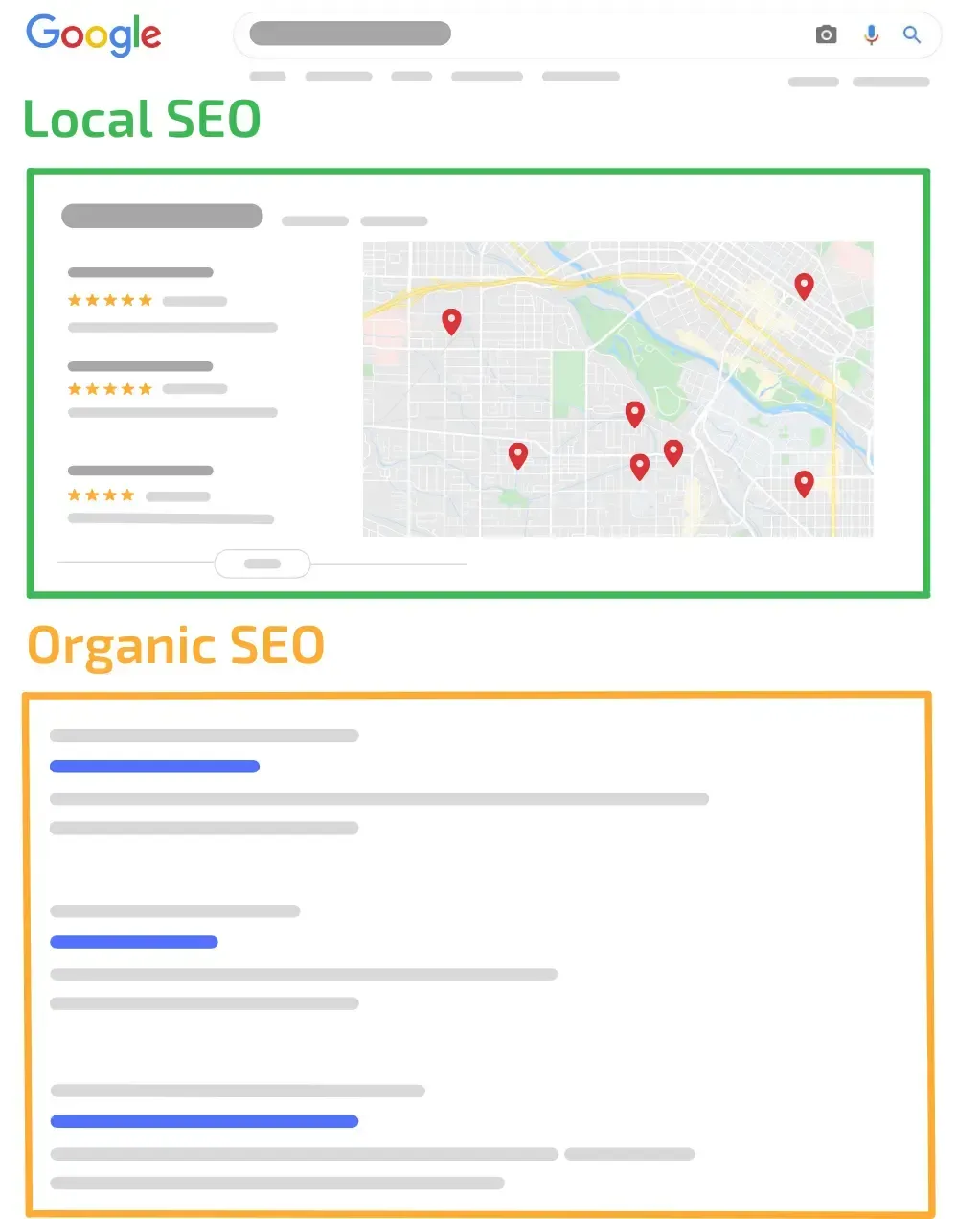
Local SEO
Local SEO aims to optimize a company's business profile/listing to appear prominently in these local search results, ensuring that businesses connect with nearby potential customers.
Organic SEO
Organic SEO aims to optimize a website's content, structure, and online presence to improve the website's rank in search engine results pages (SERPs) for relevant keywords and phrases. This form of SEO has a broader scope and is not limited to a specific geographic area.
What’s Next
Now that we’ve covered the basics in our introduction, make sure to come back for Part 2 of KUKUI’s SEO blog series.


